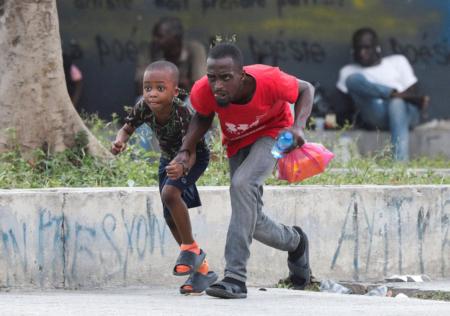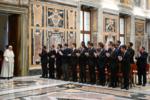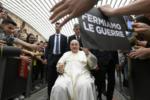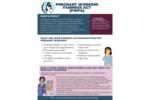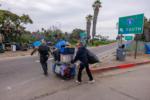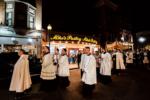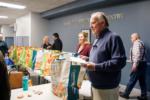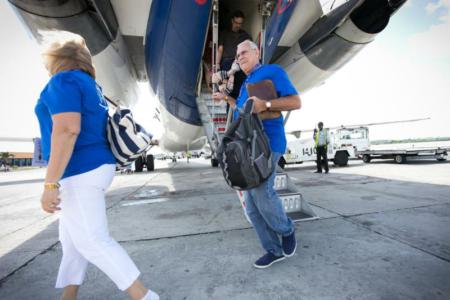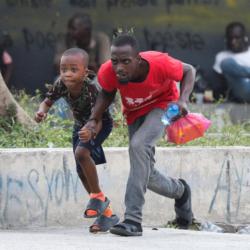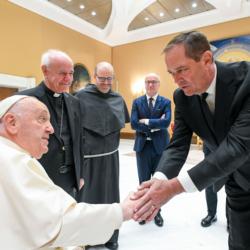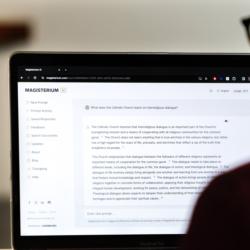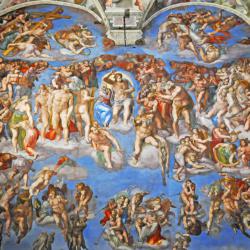Cuban-American finds Havana's poverty unsettling, will continue outreach
MIAMI (CNS) -- In just three years between the past two papal visits to Cuba, retired Miami academic Andy Gomez remains disturbed by what he said is an alarming uptick in poverty and urban decay in the island nation's capital.
A retired assistant provost and dean of international studies at the University of Miami, where he also was a senior fellow at the university's Institute for Cuban and Cuban-American studies, Gomez, his wife and several hundred South Florida Catholics made a Sept. 18-21 pilgrimage to Havana in support of the pope's visit to Cuba before his U.S. trip.
Led by Miami Archbishop Thomas G. Wenski, the Florida delegation included clergy, adults, families and young adults who encountered Pope Francis during his events in Havana.
Ever since a chance meeting with Cuban seminarians in 2012, during Pope Benedict XVI's visit to Cuba, Gomez developed friendships at one of Havana's oldest and most historic churches, Santuario de Nuestra Senora de la Merced, a Catholic shrine in Old Havana dedicated to Our Lady of Mercy.
With his wife, Frances Serantes Gomez, he delivered donations of humanitarian aid and religious items in September to the parish during the archdiocesan-sponsored pilgrimage in support of Pope Francis' visit to Cuba.
He also had a chance to meet with local families, including youth and elderly who benefit from La Merced parish outreach.
"We were taken aback by the poverty around the neighborhood," Gomez said, recalling a parish event and meal for local families at La Merced Sept. 19, the Saturday before the papal Mass in Havana. "They had to turn back families and kids that night because there was not enough room."
Gomez and others were invited to the program by Father Gilbert Walker, an American-born Vincentian priest from Gulfport, Mississippi, who has been a missionary in Cuba since 2003.
"They put on a nice show for us, and we talked to the kids, the families, we brought them rosaries," said Gomez, adding that the members of his own extended family in Miami are in full agreement that they want to help support the parish and its community outreach.
Their efforts support a social worker and psychologist who work with youth from broken families adjusting to Havana's hard economic realities. The parish also offers an elderly care and a youth nutrition program.
Gomez said that a modest expansion of the tourism industry in Old Havana is not able to diminish the economic realities seen along city streets around La Merced and many other neighborhoods in Havana.
Despite some rancor in Miami's Cuban-American exile community and local media about the 2015 papal visit to Cuba, he thinks more U.S. parishes should put aside politics and adopt a parish somewhere in Cuba as a Catholic gesture of charity.
Parish programs, he said, need clothing, shoes, school supplies, air conditioning units, basic medical supplies and nutritional support.
"I found the poverty in Havana shocked me," he told the Florida Catholic, Miami's archdiocesan newspaper. "Sure there are hotels and restaurants, but those are owned by the government. Those Cubans who have access to tourists can make ends meet a little better, but I cannot imagine how bad things really are in Havana."
"I also found more Cubans traveling from the interior to the urban center to see if their lives can improve a little. Those little homes around La Merced now house around 10 to 15 people," Gomez said, adding that he hopes to invite Father Walker to visit Miami later this year.
Not all members of the extended Gomez family, he said, are comfortable with the idea of traveling to Cuba, but they do support his efforts. He insists there is no political agenda -- only a wish to help people in need.
"The church at the local level is doing a tremendous job in meeting some of those basic needs that the government can no longer meet," he said. "There is a lot of work that needs to be done in Cuba. Probably 60 percent of Havana needs to be torn down, and who is going to pay for those repairs?"
Gomez said his conversations with Cuban young adults indicates an alarming lack of confidence in the Cuba's future and that they want to leave Cuba for better opportunities. "They realize that politically nothing is going to change and now they will have to struggle more as the government cuts back."
"I hope that this parish program continues to grow and that it continues to grow bridges in their local community, that it helps these kids with what they face every day," he said.
"They were innocent, their families were very welcoming. When they asked me to speak I said that I don't come with a political agenda. We come with open arms to help them in any way we can and not tell them what to do."
- - -
Tracy writes for the Florida Catholic, newspaper of the Archdiocese of Miami.
